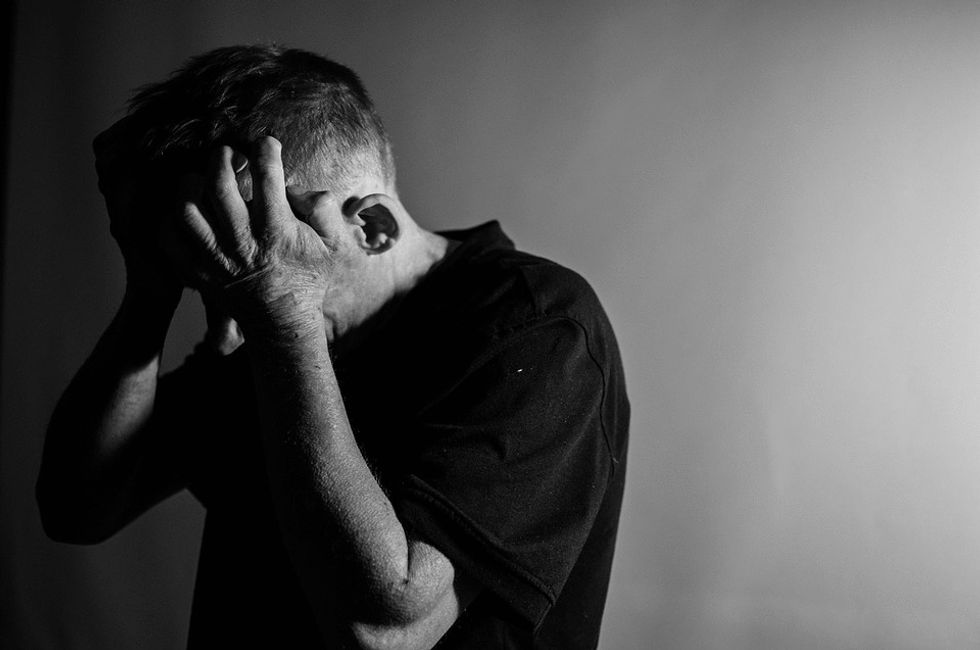Characters:
Morgan Patipa: A physically disabled senior at the University of Central Florida who is majoring in psychology and is active in advocating for increased accessibility and inclusion for her fellow disabled students.
Stella Young: An Australian comedian and disability rights activist who had Osteogenesis Imperfecta. Ms. Young speaks out on the inclusion of disabled individuals and lack of accessibility in society.
Roy McConkey: A professor of developmental disabilities and former professor of learning disabilities at the University of Ulster. In addition to being a professor, he is also a licensed psychologist and honorary professor at the University of Cape Town and Trinity College in Dublin Ireland. McConkey has been and continues to be heavily involved in research projects dealing with the social inclusion of disabled individuals and many other disability-related topics.
Carolyn L. Vash: A licensed psychologist who earned her Ph.D. and is the author of many books on disability, disability culture, and how having a disability affects people from a psychological standpoint. Most notably, Vash is the coauthor of the book "Psychology of Disability" which delves into the experiences that disabled individuals have in all aspects of life including those dealing with relationships and getting an education, among others. Specifically, she looks at how disabled individuals' experiences in these areas differ from those of nondisabled individuals and how those differences can affect disabled persons psychologically.
Patipa: Hi my name is Morgan Patipa and I'd like to welcome you all to today's episode of "Decoding Disability" where we aim to eradicate the stigma surrounding disability by answering questions and discussing topics about disability that many nondisabled individuals are too afraid to ask or talk about. Today we are going to be attempting to answer the question "What are the potential psychological effects of disabled people being socially excluded?" Joining me to help explore this question is our panel of experts, comedian and disability rights activist Stella Young, Professor Roy McConkey, and Carolyn L. Vash, psychologist and author of "Psychology of Disability" and many other books on disability and disability-related issues. Welcome, thank you all for being here, now let's get straight to it. Before we get to answering the "big" question at hand, we must decide what we define social exclusion to be. So, how do each of you define social exclusion?
Vash: Well, that's somewhat of a tough question considering everyone probably has a different definition of what social exclusion is but personally I consider social exclusion to be intentionally not including someone in a social situation or activity that they may enjoy.
McConkey: I agree with you Carolyn, however when it comes to how I would define social exclusion in terms of excluding the disabled, I would add to your definition and say that the intentional exclusion is motivated by the excluder or excluders not wanting to "ruin the fun" by having to potentially help the disabled person with things like getting a plate of food at a barbeque or party, or even having to potentially help them transfer out of their wheelchair to a regular seat.
Vash: Yes, I completely agree with you that the motivation behind excluding someone from a social situation changes when it involves a disabled individual.
Patipa: Stella, what are your thoughts? How would you define social exclusion?
Young: As a disabled person myself, I would define social exclusion to be intentionally excluding someone and the exclusion being motivated by malice, therefore the excluder is excluding to be malicious.
Patipa: Ok, so all three of you agree that to be considered to be social exclusion, it must be intentional, but can something be considered to be social exclusion if there is no malicious intent in excluding the person or do the reasons for excluding have to be malicious?
Young: Well, I personally believe that social exclusion is social exclusion, no matter the motivation. No matter if the motivation behind the exclusion is malicious or not, excluding someone, and especially excluding someone from a social situation is a malicious thing to do in and of itself.
McConkey: Yes, I agree with you Stella, it doesn't matter the motivation, social exclusion is social exclusion and it is not acceptable, no matter the circumstance.
Patipa: So now that we've delved into how we define social exclusion, let's move on to discuss what everyone is curious about, the potential psychological effects of people with disabilities being excluded. Carolyn, would you please start us off?
Vash: Sure, Morgan. So as a psychologist who has treated many individuals with disabilities throughout my years of being in the workforce, and as an author, who for my books has had to do an abundance of research on how having a disability affects people from a psychological standpoint, I've learned that depression and anxiety are two of the most common psychological disorders to develop in people with disabilities.
McConkey: You are correct Carolyn, anxiety, and depression are two of the most prevalent psychological diagnoses among patients with disabilities but why do you think that this is the case?
Vash: That's a good question. Well, I believe that it is the case because many of the obstacles and challenges that people with disabilities face on a daily basis can lead them to develop depression due to the fact that these obstacles can remind the individuals of just how challenging their disabilities are and how much of an impact that having a disability has on their daily lives. When disabled individuals realize just how much of an impact that their disability has on their ability to function within society, it can lead to them potentially develop depression. On the other hand, anxiety can also arise as an effect, due to these individuals being uncertain about their prognosis and how effectively they will be able to function as a member of society.
Young: May I interject for a moment? In addition to developing anxiety and depression, it is also very common for disabled individuals to develop a significant amount of social anxiety. Think about it this way, unfortunately, people with disabilities are often not afforded as many opportunities to socialize as their nondisabled peers. Therefore, it is significantly more difficult for them to maintain or improve upon their social skills. Thus, when put into a social situation, it is likely that they won't be able to function effectively due to their underuse of social skills.
Patipa: Yes, the way I see it is like a muscle. If I go to the gym every day but I never exercise my arms, I will lose all of the strength in them. Similarly, if people with disabilities are not given the opportunity to "exercise" their social skills, they will lose their ability to communicate effectively in a social situation and therefore they will most likely develop social anxiety.
Young: Exactly, and developing depression, anxiety, and social anxiety can have an extremely significant impact on the lives of the people affected by it. For instance, developing social anxiety can lead the disabled person to do poorly on a job interview, not because they weren't well-prepared but because they no longer know how to communicate as effectively as they once did, due to the loss of age-appropriate social skills.
Patipa: So, what are some ways that we as a society can prevent these problems from arising? Is there anything that we as a society can change or institute to do so?
Vash: Well, as I discuss in my book "Psychology of Disability", in order to prevent these problems from occurring we need to normalize the idea of disability in society, as a means to lessen the negative emotions that many disabled individuals have about their disabilities. If we do this, it could potentially result in the decreased frequency with which these problems develop for people with disabilities.
Patipa: I agree that we should make every effort to normalize disability, in society, yet nondisabled people viewing disabled people as inspirations just for being themselves is wrong, in my opinion.
McConkey: I completely agree with you Morgan. More often than not, for some reason, many nondisabled people view their disabled peers as though they are inspirations, but the question is why? Why is this often the case?
Young: I think that this is the case because nondisabled people believe that disabled people are so brave and strong for being able to cope with their daily challenges while simultaneously being able to function as a member of our society. And while yes, this is certainly impressive, if I'm going to be treated the same way you would treat a nondisabled person, I shouldn't be considered inspirational just because I am living, breathing and going about my daily routine.
Patipa: Yes, we should be considered inspirational only for something that we actually accomplished, just because we are disabled doesn't mean we are innately inspirational.
Vash: I agree, in our efforts to normalize disability in society, we should also make a concerted effort to establish that people with disabilities aren't born inspirational. Just like the rest of us, they should be regarded as inspiring because they've done something that is inspiring to other people.
McConkey: Feeding off of the idea of people with disabilities being inspirational just for living and breathing, including disabled people in social situations just because they are disabled, "inspiring", and because nondisabled people feel bad for them is also not good.
Young: Yes, I don't want to be included in a social gathering because you feel bad for me or because it will make you feel like a "better person" for doing so. That's not true inclusion. Social inclusion is when you include someone with a disability in a social situation because you genuinely want them to be there, not for any other reason.
Patipa: Well, those were some powerful words that will surely leave a lasting impression, Stella. Unfortunately, we are out of time but I would like to thank everyone on this panel for joining me in discussing these topics. Thank you to everyone at home for joining us, I'll see you next week.



















